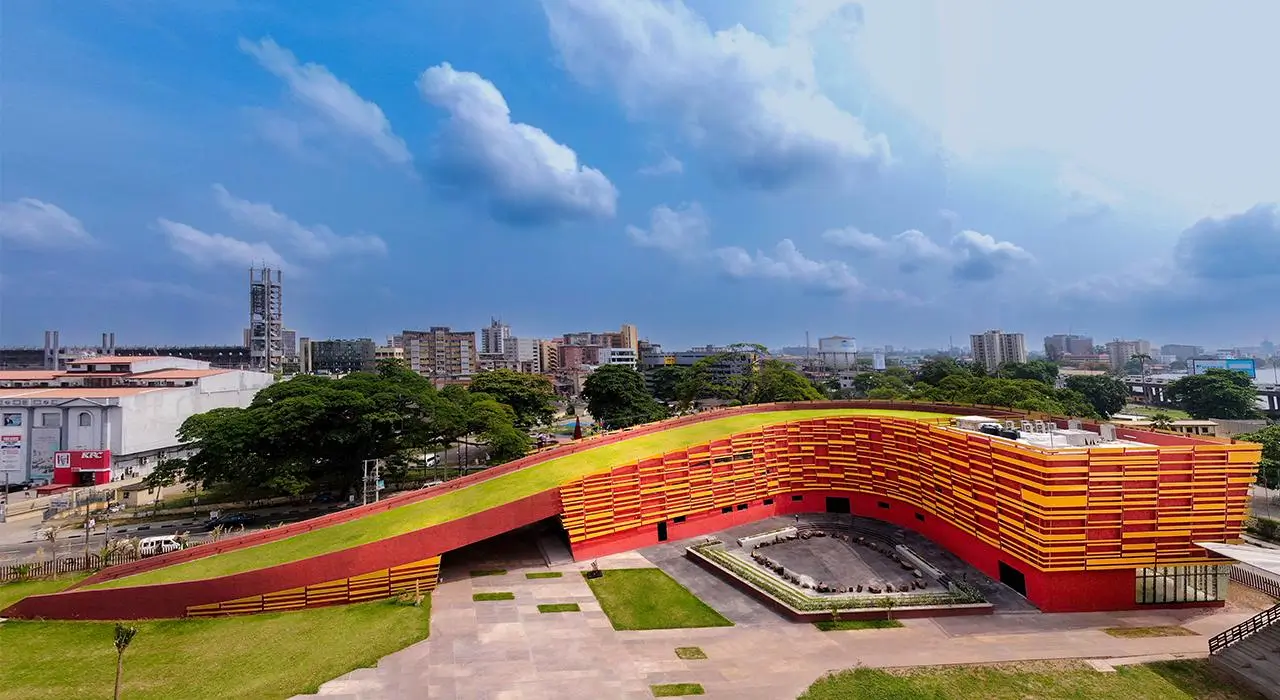

On October 29, 2024, Lagos State Governor Babajide Sanwo-Olu officially opened the museum at the John Randle Centre for Yoruba Heritage and Culture in Onikan, Lagos, the first Yoruba culture museum in Lagos, to the public. This museum, a central feature of the Centre inaugurated last year, showcases a rich collection of historical, artistic, and cultural artifacts significant to the Yoruba people. During the event, Governor Sanwo-Olu appointed Qudus Onikeku as the Centre’s Director, underscoring the state’s commitment to preserving and promoting Yoruba heritage.
In his address, Governor Sanwo-Olu highlighted Lagos’s status as Africa’s cultural epicenter, emphasizing its potential in tourism, music, film, art, and culture. He expressed his administration’s dedication to creating an environment conducive to private sector participation, aiming to bolster the state’s creative economy. The Governor also called for the repatriation of Yoruba artifacts held in foreign museums, stressing the importance of uniting the past, present, and future in one location to enrich cultural heritage.
Commissioner for Tourism, Arts, and Culture, Toke Benson-Awoyinka, praised the museum’s launch as a testament to Lagos State’s unwavering commitment to preserving and promoting the invaluable history and traditions of the Yoruba people. She noted that the John Randle Centre is designed to inspire a sense of pride and connection among visitors, celebrating the enduring spirit and contributions of Yoruba ancestors.
The John Randle Centre for Yoruba Culture and History in Lagos offers visitors a comprehensive exploration of Yoruba heritage through its diverse exhibits and interactive experiences. The museum’s 1,000-square-meter exhibition gallery showcases a rich collection of artifacts, artworks, and personal items donated by notable figures such as Wole Soyinka, Lola Shoneyin, and Ebenezer Obey, as well as the families of Chief Obafemi Awolowo and Fela Kuti. These collections provide deep insights into Yoruba art, fashion, literature, music, and history, celebrating both tangible and intangible aspects of the culture.
Beyond traditional exhibits, the Centre immerses visitors in multisensory experiences that bring Yoruba stories and traditions to life. Upon entry, guests are greeted by an audio-visual display that animates Yoruba creation myths, offering an engaging introduction to the cultural narratives. The museum also features interactive installations that highlight the dynamism of Yoruba festivals and the rich visual culture of Yoruba history and ancestry, providing a vibrant and educational experience for all ages.
In addition to its exhibition spaces, the John Randle Centre serves as a community hub with facilities designed to engage and educate visitors. The Centre includes a library, performance hall, and public square, creating spaces for learning, artistic expression, and social interaction. A notable feature is the restored swimming pool, originally opened in 1928 by Dr. John K. Randle, which continues to serve as a recreational facility. Visitors can participate in workshops, attend cultural performances, and enjoy the Centre’s dining options, making it a multifaceted destination that honors Yoruba heritage while fostering community engagement.
The museum also emphasizes the importance of technology in preserving and promoting Yoruba culture. Visitors can interact with augmented reality (AR) features that bring artifacts to life, such as digitally reconstructing ancient Yoruba cities or showing the intricate processes behind traditional crafts like adire fabric dyeing. The incorporation of digital storytelling ensures that younger generations and international audiences can engage with Yoruba history in innovative ways. These tools aim to bridge the gap between tradition and modernity, making cultural education accessible and exciting.
Additionally, the Centre organizes regular cultural events, including live drumming sessions, storytelling evenings, and art workshops. Seasonal festivals are recreated within the museum grounds, giving visitors a chance to experience Yoruba traditions in a lively, authentic setting. By blending educational exhibits with interactive and communal activities, the John Randle Centre not only preserves Yoruba heritage but also celebrates its relevance and vibrancy in contemporary society.



